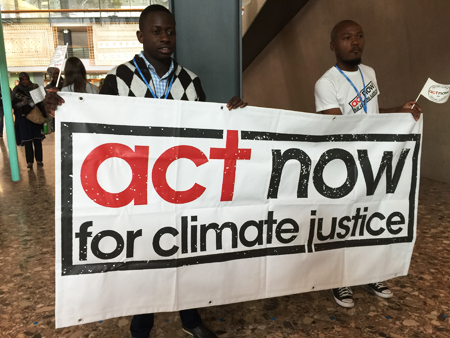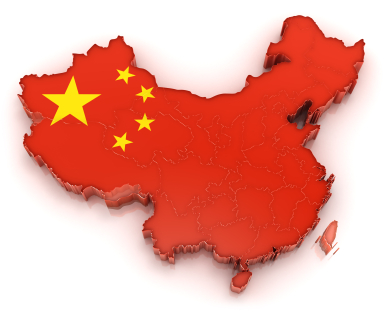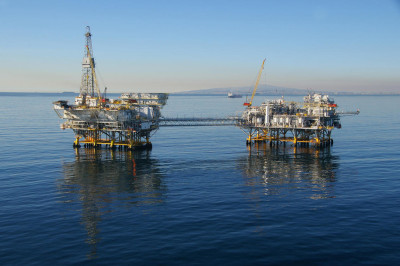Wealth Redistribution is the Green Agenda
 This final week of negotiations at the United Nations meeting in Bonn, Germany, can be summed up in a few words from Karl Marx, “From each according to his ability, to each according to his need.”
This final week of negotiations at the United Nations meeting in Bonn, Germany, can be summed up in a few words from Karl Marx, “From each according to his ability, to each according to his need.”
Tracy Carty, for example, the head of the radical Oxfam’s delegation demanded redistribution saying, “This is a maddeningly familiar situation; rich countries are once again refusing to have meaningful discussions on how to raise money to help communities facing the worst impacts of climate change....There are plenty of ways to raise funds for ‘loss and damage,’ from taxes on fossil fuel extraction to international shipping, but rich countries don’t want to even consider them. Negotiating in this way only erodes trust between countries and makes actual progress even harder.”
Another statement from Sven Hamerling, Climate Change Advocacy Coordinator, CARE International: “There has also been a lot of resistance from developed [rich] countries, unfortunately, to even start looking into a process which is about generating additional finance. I think in the overall political setting of this debate, there was a conclusion that we can only get to a certain point and leave further conversations and further fights for more finance to the future.”
Responding to remarks by French president Emmanuel Macron, Armelle Le Comte, Oxfam France’s climate policy lead said: “Climate leadership is about concrete actions, not just rhetoric. Without any new announcements on finance for climate-vulnerable communities, it appears Emmanuel Macron came empty-handed to Bonn.”
The UN’s redistribution scheme works like this. First it “assesses” how much rich nations “owe” under the nebulous definitions of “ambition” and “equity.” “Ambition” means the amount of money and technology rich nations have pledged to transfer to poor nations. “Equity” is the notion that the U.S. owes more money to the poor because we caused climate change due to our lifestyles provided by fossil fuels. Therefore, we have a greater “capacity to act” or “responsibility” meaning that we owe more money.
The radical greens claim that these two principles would enable the “transition” we need. Transition to what you might wonder? A utopian transition to a carbon free world in which a “developmental shift” will “achieve equitable, thriving societies.”
On the one hand the UN wants money from rich countries whose wealth was created by our fossil fuel based economies. And on the other hand, it demands that we demolish our lifestyles by replacing our dependable energy sources with undependable sources like solar and wind, an impossibility. The UN wants to kill the goose that lays golden eggs.
The UN is just as opposed to science as it is to free market capitalism. Take for example the new satellite called OCO-2 that was launched in 2014 and circles the Earth over 14 times a day, gathering about 100,000 measurements per day—including in areas that have not been observed much before, like the middle of the ocean and the Amazon rainforest. Using that data, researchers put together a map of CO2 concentrations over the planet, to see how the gas is absorbed and emitted, and how it is dispersed into the atmosphere.
Scientists knew that El Niño was a recurring climate pattern that brings warm waters to the tropical Pacific Ocean, affecting weather all over the globe. But they were intrigued to find that an extra 2.5 gigatons of CO2 was released into the air compared to 2011, when conditions were normal. That extra carbon, about 25 million Statues of Liberty worth of mass, came from tropical areas in South America, Africa, and Asia--NOT the U.S. They found that the plants all reacted differently. In South America, the plants’ growth was stunted by drought, causing them to vacuum up less CO2 than usual. In Africa, the heat caused dead plants to decompose more quickly, releasing high amounts of CO2. And in Asia, drought and heat caused forest fires, which also pumped huge quantities of carbon into the air.
Science ignored, the redistributionists continue to make three financial demands. The first demand is that, “Rich countries need to be constantly compelled to clearly show how they’re making progress against the $100 billion commitment.” The UN’s Green Climate Fund is to transfer $100 billion annually from rich to poor countries, but has collected only about $10 billion thus far.
Demand number two is for “loss and damage” finance, which is not clearly defined, but is supposed to help with storm damages in poor countries.
Thirdly, the radical greens demand that the Adaptation Fund become part of the Paris Agreement. That fund has become “relevant” according to the meeting’s chief negotiator because Germany pledged $50 million Euros to it on the opening day of the conference.
With only two days remaining, this conference has yet to deliver the redistributionist demands, but if there is one fact you can take to the bank, it is that the UN and its “civil society” radical greens will continue to pursue the redistribution of wealth. Next year’s meeting in Poland will surely take up where Bonn left off--to again ramrod the redistribution goals of the Paris Agreement.








